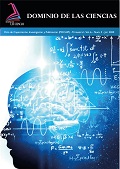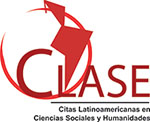Impact of ICT on virtual learning
DOI:
https://doi.org/10.23857/dc.v6i3.1337Palabras clave:
ICT, education, technology.Resumen
Information and Communication Technology (ICT) has transformed over time and is a promising tool for improving the learning process. The core aim of the research study is to evaluate the possibilities of teaching and learning in a virtual learning (networked) environment where both teachers and learners transform. This study relied on a literature review for forming a conclusion about the issue. The review of different articles revealed that ICT focuses on providing quality education, distance learning, low-cost learning, feedback option, and the option to record the session. The negative elements are that the connection may break due to poor internet, noise issues, inability to receive questions properly during the lecture, poor engagement with virtual learners, and deficient examination evaluation. Teachers and learners can transform by considering both the positive and negative sides of the ICT and having a back-up to avoid interruption in the learning session. It is concluded that the advent of smartphones, computers, laptops, and applications like Zoom, YouTube, Facebook, and WhatsApp video is transforming conventional teaching practices. The most common software is ‘Zoom’ in the current environment that encourages the learners to take sessions online. However, it also has drawbacks that have already been discussed. Hence, it is concluded that teachers and learners should consider both benefits and drawbacks of ICT when utilizing a virtual-learning session.
Citas
Bryman, A. (2014). Social research methods. OUP Oxford.
Bryman, A. (2017). Quantitative and qualitative research: further reflections on their integration. In Mixing methods: Qualitative and quantitative research (pp. 57-78). Routledge.
Cao, W., Fang, Z., Hou, G., Han, M., Xu, X., Dong, J., & Zheng, J. (2020). The psychological impact of the COVID-19 epidemic on college students in China. Psychiatry research, 112934.
Deka, M., & Jena, A. K. (2017). Effects of ICT Assisted Real and Virtual Learning on the Performance of Secondary School Students. Online Submission, 4(9), 1405-1420.
Fu, J. (2015). Complexity of ICT in education: A critical literature review and its implications. International Journal of education and Development using ICT, 9(1), 112-125.
Hair, J. F. (2015). Essentials of business research methods. ME Sharpe.
Li, S., Yamaguchi, S., & Takada, J. I. (2018). Understanding factors affecting primary school teachers’ use of ICT for student-centered education in Mongolia. International Journal of Education and Development using ICT, 14(1).
Livingstone, S. (2015). Critical reflections on the benefits of ICT in education. Oxford review of education, 38(1), 9-24.
Noor-Ul-Amin, S. (2013). An effective use of ICT for education and learning by drawing on worldwide knowledge, research, and experience. ICT as a Change Agent for Education. India: Department of Education, University of Kashmir, 1-13.
Olaore, I. B. (2016). The impacts (positive and negative) of ICT on education in Nigeria. Developing Country Studies, 4(23), 154-156.
Player-Koro, C. (2016). Factors influencing teachers’ use of ICT in education. Education Inquiry, 3(1), 93-108.
Salehi, H., & Salehi, Z. (2017). Challenges for using ICT in education: teachers' insights. International Journal of e-Education, e-Business, e-Management and e-Learning, 2(1), 40.
Solar, M., Sabattin, J., & Parada, V. (2013). A maturity model for assessing the use of ICT in school education. Journal of Educational Technology & Society, 16(1), 206-218.
Talebian, S., Mohammadi, H. M., & Rezvanfar, A. (2014). Information and communication technology (ICT) in higher education: advantages, disadvantages, conveniences and limitations of applying e-learning to agricultural students in Iran. Procedia-Social and Behavioral Sciences, 152, 300-305.
Theodotou, E., & Kaitsa-Kulovana, H. (2014). Virtual Learning: Examination of ICT as Beneficial Learning Tool for Children's Social Development. Online Submission.
Thorsteinsson, G. (2015). Using ICT for Training Teachers in Design and Technology Education (TTDTE). Journal of Educational Technology, 9(3), 9-13.
Underwood, J., & Dillon, G. (2015). Chasing dreams and recognising realities: Teachers’ responses to ICT. Technology, Pedagogy and Education, 20(3), 317-330.
Vrasidas, C. (2018). The rhetoric of reform and teachers' use of ICT. British Journal of Educational Technology, 46(2), 370-380.
Wastiau, P., Blamire, R., Kearney, C., Quittre, V., Van de Gaer, E., & Monseur, C. (2013). The Use of ICT in Education: a survey of schools in E urope. European Journal of Education, 48(1), 11-27.
Publicado
Cómo citar
Número
Sección
Licencia
Authors retain copyright and guarantee the Journal the right to be the first publication of the work. These are covered by a Creative Commons (CC BY-NC-ND 4.0) license that allows others to share the work with an acknowledgment of the work authorship and the initial publication in this journal.







